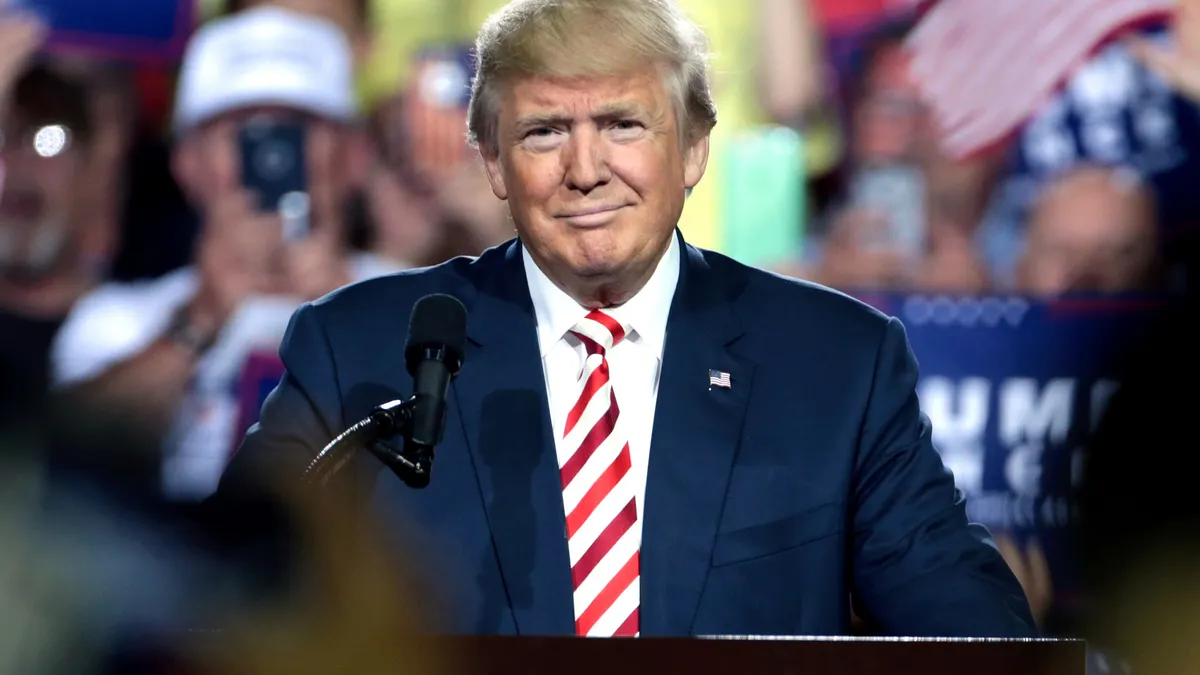This story has been updated to include new details of the executive order.
Dive Brief:
-
President Donald Trump signed an executive order on Tuesday concerning the environmental review and permitting process for infrastructure projects, delivering the news in a statement at his Trump Tower residence in New York City.
-
The order nixes the Obama-era Federal Flood Risk Management Standard, which set higher resiliency standards for projects that receive federal funds and are vulnerable to sea-level rise. State and local officials can still opt to use that and other existing standards, Reuters said in a separate report.
-
Trump's order calls for the federal permitting and approvals process for "new major infrastructure projects" to be reduced to roughly two years, and for a single federal agency to take the lead in providing oversight for each of such projects.
Dive Insight:
Increasing investment in U.S. infrastructure was a key tenet of Trump’s campaign platform. But since his election, details of just how that plan would be executed have been slow in coming. His 2018 budget request calls for $200 billion in direct federal spending on infrastructure. That federal capital infusion is expected to serve as tinder for private-sector investment, generating $1 trillion total. It is still unclear which projects will receive funding.
Moves by the administration to create a list of projects deemed to be of national import, along with the retooling of the FASTLANE (now INFRA) program to prioritize small, rural projects and those getting private or non-federal investment point to the president's priorities in a national rebuilding program.
Democrats plan to continue resisting the use of private funds on such a massive public works program, and Republicans are largely opposed to stimulus-like funding. Trump has formed a task force, led by two prominent New York City real estate developers, to oversee his infrastructure plan. Last month, a nonprofit advocacy group sued the president along with the Transportation and Commerce departments for violating federal public notice and other transparency rules in their operation of the infrastructure panel.
Meanwhile, Congress has a lot on its plate. A stymied healthcare bill and tax-reform ambitions, as well as finalizing the 2018 budget, are expected to hold their attention through the end of this year. Recent reports suggest legislators could put infrastructure on the back burner until early 2018 as a result.
The latest executive order, published Tuesday evening on the White House website, calls for a tracking and scoring mechanism to follow projects along the approvals process. The order also calls for a working group to be created to review the environmental assessment process.
According to Bloomberg, the order's rolling back of environmental regulations was met with criticism, though others viewed the order favorably because of its aim to speed up infrastructure project timelines.
The latest announcement comes amid Congress' August recess. Legislators will return to Capitol Hill after the Labor Day holiday.















